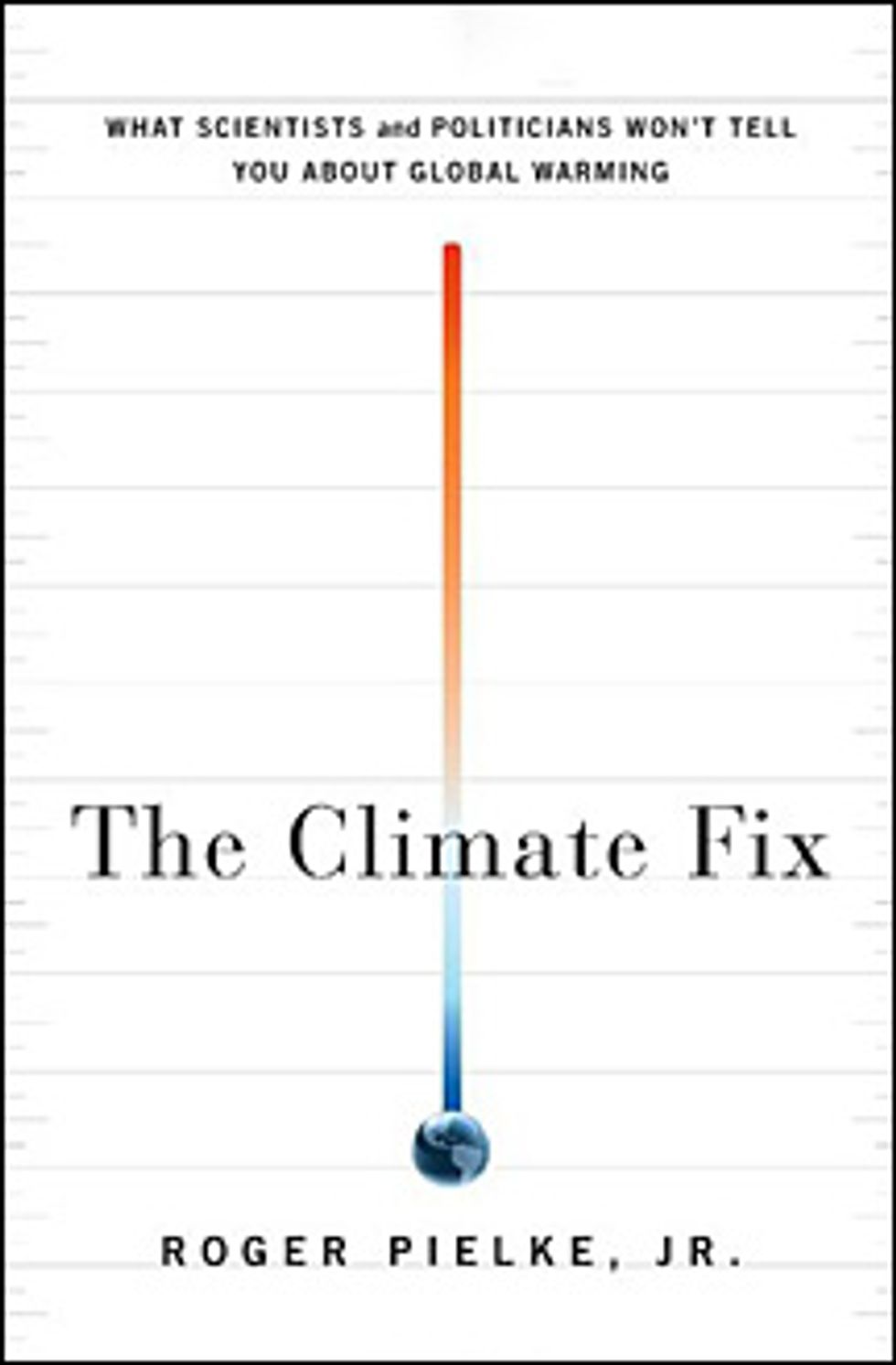Reviewed by Dave Levitan
By Roger Pielke Jr.; Basic Books, 2010; 276 pp.; US $26.00; ISBN 978-0-4650-2052-2
While many prominent climate scientists are spending their time advocating action and highlighting what we do know, Roger Pielke Jr. apparently wants everyone to take a giant step backward and restart the entire conversation. Despite its title, his new book, The Climate Fix, gives much more attention to climate failures than to climate fixes.
Pielke, a professor of environmental studies at the University of Colorado at Boulder, has found himself at the center of science-blogger wars in the past, and though he doesn’t address those battles directly, his thesis remains the same. In short: Scientists need to stay out of politics.
The politicization of a scientific debate is at the center of the book’s argument. What will surely rankle climate-change activists is that Pielke seems to focus on the foibles of the consensus scientists rather than on those of the lunatic fringe. Pages and pages are devoted to explaining why certain important papers and reports—from the iconic "stabilization wedges" paper to theIntergovernmental Panel on Climate Change’s monumental undertakings—are suspect because of their political motivations. Very little space is devoted to explaining just how urgently action is needed. Significantly, Pielke agrees with the rest of his field on the need to stop emitting carbon dioxide and to stabilize its concentration in the atmosphere at somewhere between 350 and 500 parts per million; he just doesn’t want scientists to tell the rest of us how to get there.
And so with all the "debunking" of prominent science, by the book’s end his readers won’t have learned very much at all. If you didn’t know that there were uncertainties in climate science before, then yes, you will definitely know that now. Pielke’s actual "fix," on the other hand, comes so late in the book and is so poorly highlighted that it might not get noticed at all.
What is that fix? Well, it involves an obscenely low price on carbon (US $5 per metric ton) that will pay for further innovations in renewable energy. Other than that, Pielke advocates setting specific goals, monitoring progress, and focusing on technology advancement. Yawn.
If Pielke’s first tenet is the completely unrealistic and potentially counterproductive divorce of science from policy, his second, as evidenced by the meager carbon price, seems to be aiming low in the name of political expediency. He suggests five bucks only because it seems feasible and cites the support of Exxon Mobil’s CEO as evidence. Seriously, Exxon Mobil. "The precise amount of the tax itself—whether $5 per metric ton, or $10, or only $3—is less important than that the tax be implemented at the highest price politically possible," Pielke writes.
Such "pragmatism" amounts to bargaining ourselves down in advance of the bargaining that we have to do with others. Pielke’s carbon price will force fossil fuel companies like ExxonMobil to do absolutely nothing differently. Pielke admits this, noting that the point is simply to raise money for renewable energy technology innovation. Such a path, though, ignores the vast scientific consensus that we need to start lowering emissions yesterday. Even if his carbon tax could raise $150 billion per year, as Pielke suggests, the pace of innovation can’t match the pace of current emissions and subsequent temperature and sea level rise, ocean acidification, and various other problems. At its root, Pielke’s climate fix is to do almost nothing.
For more book reviews, see the full list.
About the Author
Dave Levitan is a science journalist based in New York City. He is a regular contributor to IEEE Spectrum’s EnergyWise blog.

